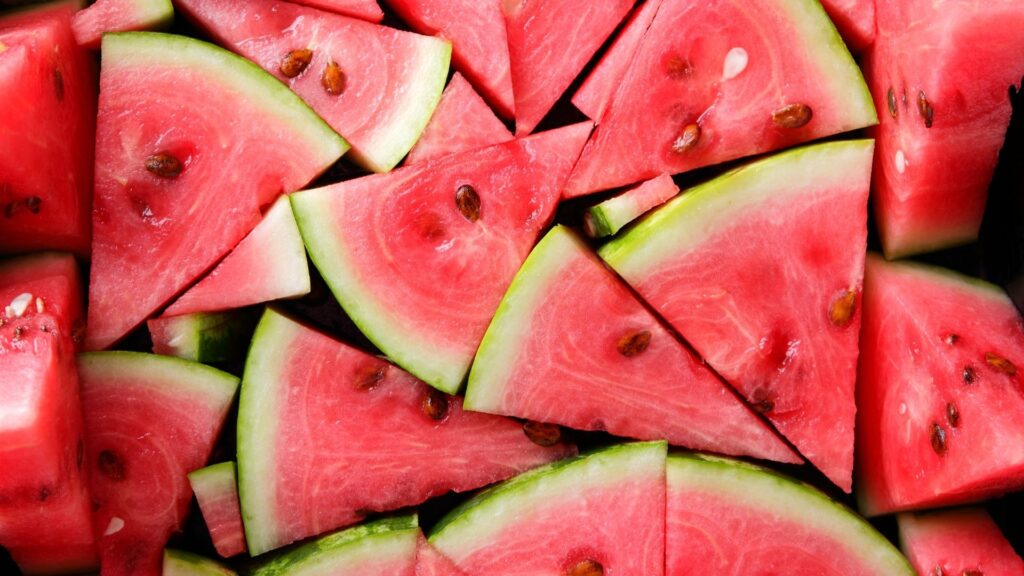? Watermelon ?
Let’s talk about it a little.
? Low in calories (less than 50 per cup).
? Very high in its liquid content (about 92%)
“Blasted” with nutrients (in a cup – 154 g of watermelon):
21% of the recommended daily intake (RDI) of vitamin C.
18% Vitamin A
5% potassium
5% magnesium
3% Vitamin B1, B5, and B6
Watermelon has a high content of carotenoids (among them beta-carotene and lycopene, two powerful antioxidants). In addition, watermelon contains a high concentration of an important amino acid – citrulline.
Citrulline is an amino acid that was first discovered in watermelon (1914. In fact, the word Citrullus in Latin means watermelon), and which has recently gained great popularity as a supplement mainly in the context of health and performance improvement in sports activities.
Citroline is not an essential amino acid. That is, our bodies know how to produce it. But it is also found in food.
Citroline, unlike other amino acids, is not used to build proteins in the body. Its main and important role is in the urea cycle – a metabolic process that cleanses the body and removes from it residues of proteins that we have consumed or that the body has broken down and turned into ammonia.
Other important roles of citrulline are dilating blood vessels (treating atherosclerosis, high blood pressure, and even as a natural substitute for Viagra and similar drugs that treat erectile dysfunction and impotency). And also in building muscle.
The other vital nutrient present in watermelon is Cucurbitacin E, a natural antioxidant and anti-inflammatory substance with amazing healing properties.
Cucurbitin is effective in treating several cancers.
Both citrulline and cocorbitin can be found in various concentrations throughout the gourd family – watermelon, cucumber, pumpkin, melon, and bitter cucumber.

